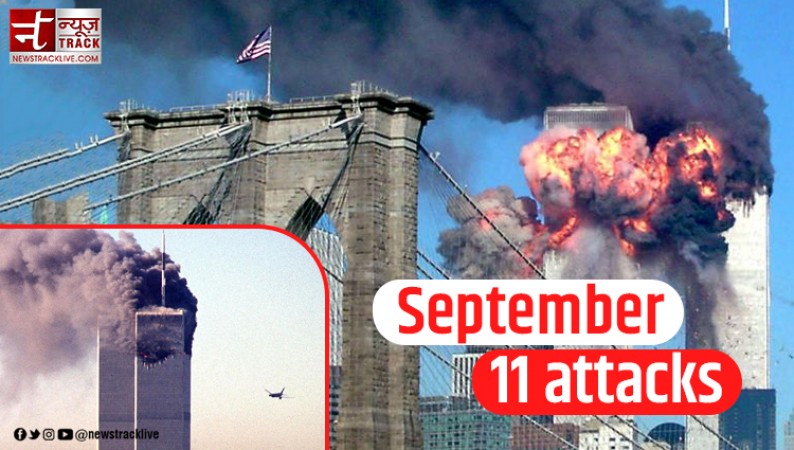
The anniversary of the September 11 attacks, often referred to as 9/11, serves as a solemn occasion for reflection and remembrance. This year marks 22 years since that fateful day in 2001 when the world witnessed a series of coordinated terrorist acts that left an indelible mark on the United States and the global community. The events of 9/11 reshaped the course of history, prompting significant changes in national security, foreign policy, and the way we view and respond to acts of terrorism. As we commemorate this anniversary, we take a moment to honor the memory of the victims, acknowledge the resilience of survivors, and consider the enduring impact of these tragic events.
The September 11 attacks, often referred to as 9/11, were a series of coordinated terrorist actions carried out by 19 militants associated with the Islamic extremist group al-Qaeda on September 11, 2001. These attacks remain one of the most devastating acts of terrorism on American soil in U.S. history, resulting in significant loss of life and extensive destruction. Below, I provide a comprehensive overview of the 9/11 attacks:
Date: September 11, 2001
Perpetrators: 19 militants associated with the al-Qaeda terrorist organization, led by Osama bin Laden.
Targets:
World Trade Center Towers (WTC): The most prominent and devastating targets were the twin towers of the World Trade Center in New York City. American Airlines Flight 11 and United Airlines Flight 175 were hijacked and flown into the North and South Towers, respectively. These impacts caused both towers to collapse within hours, resulting in immense destruction and loss of life.
The Pentagon: American Airlines Flight 77 was hijacked and crashed into the Pentagon, the U.S. Department of Defense's headquarters, located in Arlington, Virginia, just outside Washington, D.C. This attack resulted in extensive damage and fatalities.
Flight 93 Crash Site (Shanksville, Pennsylvania): United Airlines Flight 93, also hijacked by terrorists, crashed into a field near Shanksville, Pennsylvania, after passengers bravely attempted to regain control of the plane. Their actions prevented the aircraft from reaching its intended target, which remains a subject of speculation but is believed to have been either the U.S. Capitol or the White House.
Casualties:
In New York City, approximately 2,750 people were killed as a result of the World Trade Center attacks.
At the Pentagon, 184 people lost their lives.
In Pennsylvania, all 40 passengers and crew members on board Flight 93 died.
The attacks also resulted in the deaths of all 19 hijackers.
Immediate Response:
The 9/11 attacks shocked the world and prompted an immediate response from the United States:
Emergency Services: First responders, including police officers and firefighters, rushed to the scenes of the attacks. Tragically, more than 400 police officers and firefighters lost their lives while attempting to save others.
Evacuation: Large-scale evacuations were initiated in affected areas, and emergency services worked tirelessly to rescue survivors from the rubble of the World Trade Center.
National Security: The U.S. government declared a state of emergency and heightened security measures at airports, government buildings, and critical infrastructure nationwide.
Global Response: Countries worldwide expressed solidarity with the United States, and many joined the international effort to combat terrorism.
Aftermath:
The September 11 attacks had profound and lasting effects on the United States and the world:
War on Terror: The U.S. launched the "War on Terror," which included military operations in Afghanistan (Operation Enduring Freedom) and Iraq (Operation Iraqi Freedom) to combat al-Qaeda and its allies.
Homeland Security: The Department of Homeland Security was created, consolidating various agencies responsible for domestic security.
Counterterrorism: Efforts to combat terrorism were intensified, including enhanced intelligence-sharing, surveillance, and international cooperation.
Patriot Act: The USA PATRIOT Act was enacted, granting authorities expanded powers for surveillance and counterterrorism.
Memorials: Several memorials and museums were established to honor the victims and educate the public about the attacks, including the National September 11 Memorial & Museum in New York City.
The September 11 attacks profoundly reshaped American policies, security measures, and its approach to international affairs. They remain a somber and significant chapter in U.S. history, serving as a stark reminder of the impact of terrorism on a global scale.